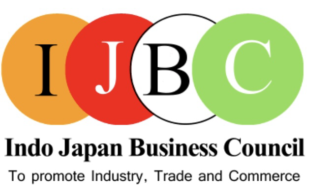What if waste could power a nation’s future?
Garbage is Gold: In a world increasingly defined by resource scarcity, climate urgency, and geopolitical tensions, Japan is betting big on a surprising asset — garbage. Yes, the very material we often discard without thought is being reimagined as a critical component of economic security and strategic independence.
But this isn’t just about trash. It’s about transforming what’s ignored into influence. And in this vision, India stands at the heart of the equation.
From Waste to Wealth

At the annual Raisina Dialogue, hosted by the Observer Research Foundation (ORF) in partnership with India’s Ministry of External Affairs, Firstpost’s IdeasPod platform brought together thought leaders to explore one of the most urgent global priorities: strategic resilience through economic cooperation.
The session titled “Japan’s Strategic Investments” featured insights from two of Japan’s most influential economic voices — Tadashi Maeda, Chairman of the Japan Bank for International Cooperation (JBIC), and Osamu Yamamoto, CEO of Unison Capital Management Pte. Ltd.
And the headline takeaway?
Japan is doubling down on critical minerals, renewable energy, and circular economy strategies — with India as its trusted collaborator.
A Wake-Up Call from 2010
Maeda, recalling a pivotal moment in recent history, didn’t mince words.
“Back in 2010, when I was a special advisor to the Cabinet, Chinese armed fishermen triggered an economic shock. Beijing’s unofficial embargo on rare earth minerals became a wake-up call,” he said.
That event exposed Japan’s vulnerability. With over 90% of rare earth processing under China’s control, Japan realized that its technological future — from batteries to defense systems — could be disrupted overnight.
So began a strategic shift. Diversify. Recycle. Invest. And most importantly: collaborate.
Why India?
Because India isn’t just rich in potential reserves of critical minerals like lithium, cobalt, and rare earths — it’s also on a parallel path toward green growth and manufacturing leadership. For Japan, which lacks many of these natural resources, India is both a partner and a power-in-the-making.
“India offers scale, strategy, and shared values,” Yamamoto noted. “And our partnership has matured beyond trade — we’re building supply chains, joint ventures, and mutual resilience.”
This isn’t just diplomacy. It’s economic survival — with a touch of innovation.
Garbage as Strategy Here’s where the story takes a fascinating turn.
Japan’s focus isn’t only on mining the earth — it’s also on mining its landfills.
With years of experience in waste segregation, urban mining, and resource recovery, Japan is pioneering the extraction of rare metals from e-waste. That discarded smartphone? It could hold gold, palladium, copper — all essential for electric vehicles, solar panels, and defense systems.
“Garbage is gold — if you know how to look,” Maeda said. “We see India as the next frontier for this circular economy revolution.”
India, with its rising e-waste volumes and growing urban centers, presents a golden opportunity to co-develop eco-industrial zones, resource parks, and recycling infrastructure — something both countries are now actively exploring through JBIC-backed initiatives.
Shared Vision, Shared Security
This isn’t just about technology. It’s about trust.
As geopolitical uncertainties mount — from the Red Sea to the Taiwan Strait — nations are racing to build alliances that can withstand external pressure. The India-Japan corridor, with its mix of capital, capability, and compatibility, is emerging as a model for mutual economic security.
“We’re not just trading. We’re co-creating,” Yamamoto emphasized. “We’re investing in capacity-building, skilling, and sustainable ecosystems.”
What Lies Ahead?
- Can Japan and India turn discarded materials into strategic currency?
- Can two democracies forge a new template for resilient growth in the global South?
- And most importantly, can innovation be driven not just by wealth — but by waste?
The future seems to say: yes.
Because in a world running short on clean air, rare metals, and certainty, the most valuable resource may not be oil or lithium — but the ability to adapt, collaborate, and reimagine the ordinary.
Japan has seen the writing on the wall. India is reading it too.
And together, they’re turning garbage into gold.
















